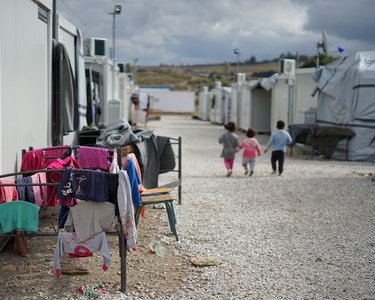Combining collective crisis intelligence and participatory AI for local humanitarian action
Nesta hosted an online event to discuss the results of a project to research, design and test new collective crisis intelligence solutions
In April 2021, Nesta’s Centre for Collective Intelligence Design, in partnership with the IFRC Solferino Academy, launched a new project to research, design and test new collective crisis intelligence (CCI) solutions.
CCI combines artificial intelligence (AI) with methods that gather on-the-ground human intelligence from communities affected by crises and frontline responders.
The researchers shared the results of a year-long partnership with the Nepal Red Cross Society and Cameroon Red Cross Society, where they prototyped new CCI solutions.
They discussed:
- NFRI-Predict – a tool that anticipated which non-food aid households in different regions of Nepal would need after a crisis.
- Report and Respond – an SMS-based tool that allowed Red Cross volunteers in Cameroon to check the accuracy of rumours and misinformation about Covid-19 they heard from the communities they worked with, and receive real-time guidance on appropriate responses.
- How they developed these tools using Nesta’s participatory AI methodology.
- Key takeaways for the humanitarian sector as a whole and lessons learnt.
The event finished with a Q&A with the project team, including IFRC Solferino Academy staff, data science fellows from Nepal and Cameroon, and researchers from the Centre for Collective Intelligence and Data Analytics Practice.
Watch a recording of the event.
Read the report: Localising AI for crisis response.
The project was funded by a grant from the UK Humanitarian Innovation Hub (UKHIH). UKHIH is an independent entity hosted within Elrha and fully funded by the UK Foreign, Commonwealth & Development Office.
